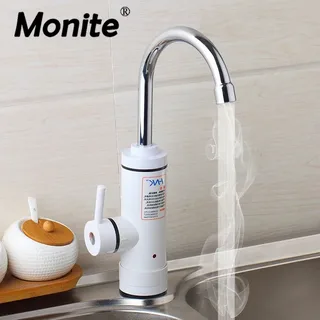Introduction to Boiling Water Units
Boiling water units have become an essential addition to modern kitchens, offering an easy and efficient way to access hot water for various needs. These appliances provide instant boiling water at the touch of a button, eliminating the need for a kettle or waiting for water to heat on the stove. They are a great time-saver, perfect for busy households, offices, and commercial settings. With the increasing demand for energy efficiency and convenience, boiling water units are transforming the way we use hot water in our daily lives.
How Boiling Water Units Work
Boiling water units are designed to heat and store water at boiling temperatures, making it readily available when needed. Most units feature an integrated heating element that raises the water temperature to a precise level, typically around 100°C (212°F). Once the water reaches the set temperature, it is stored in an insulated tank to maintain its heat. These units can be powered by electricity or gas, depending on the model, and can provide anywhere from a few liters to several gallons of hot water. The process is fast and efficient, offering hot water almost immediately when the tap is turned on.
Benefits of Installing a Boiling Water Unit
The advantages of installing a boiling water unit are numerous, with time savings being one of the most significant. Whether you need hot water for tea, coffee, cooking, or cleaning, these units ensure that you no longer need to wait for a kettle to boil or heat water on the stove. They are also more energy-efficient than traditional methods, as they only heat the water you need and keep it at a constant temperature without needing to reheat constantly. Additionally, boiling water units are often equipped with filters to ensure the water remains clean and free of impurities, improving the quality of your drinking water.
Choosing the Right Boiling Water Unit for Your Needs
When selecting a boiling water unit, there are several factors to consider. First, think about the size and capacity you need. If you have a large family or office, you may want a unit with a higher capacity to ensure everyone has access to hot water when needed. Next, consider the energy source. Electric models are common and easy to install, but gas-powered units might be more efficient in certain settings. Additionally, look for features such as adjustable temperature settings, child safety features, and energy-saving modes. Finally, think about the installation process and whether it will require professional help, especially if the unit needs to be connected to your plumbing system.
Conclusion: The Future of Boiling Water Units
As technology continues to advance, boiling water units are becoming more innovative, with smarter features and improved energy efficiency. They are increasingly being designed with user convenience in mind, offering app-controlled settings, remote operation, and integration with home automation systems. The future of boiling water units is bright, with ongoing developments in both functionality and sustainability. Whether for a home, office, or commercial environment, these units offer an unparalleled level of convenience and efficiency, making them an investment worth considering.
